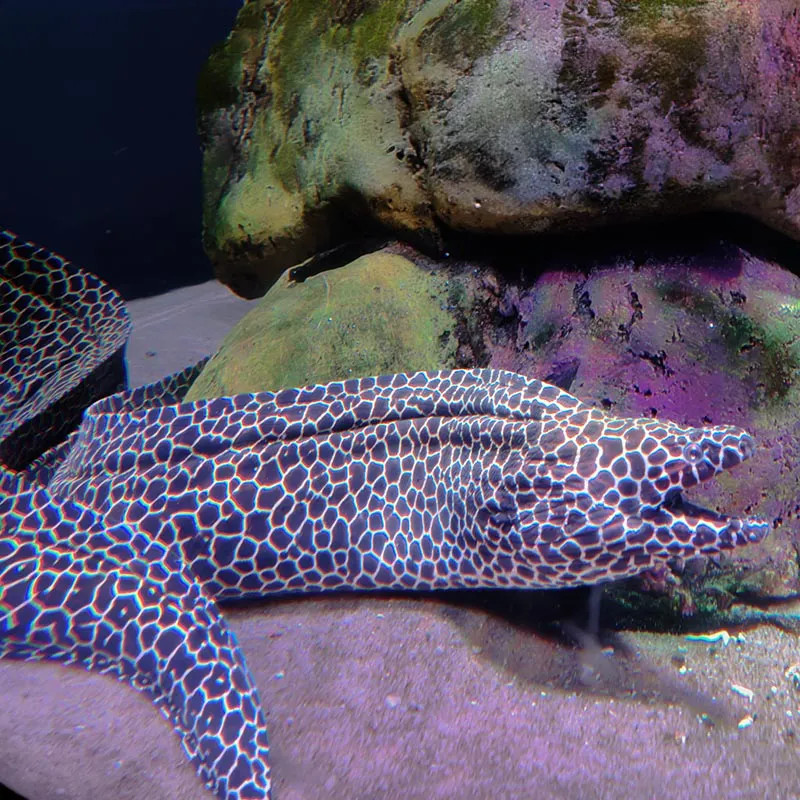Introduction
- Species: Tessalata Eel
- Common Names: Tessalata Eel, Spotted Eel
- Natural Habitat: Found in coral reefs and rocky substrates of the Indo-Pacific region, especially around coastal areas, lagoons, and reef slopes.
Physical Characteristics
- Appearance: Features a long, slender body adorned with a pattern of dark brown or black spots against a lighter background. Its smooth body and pointed head add to its distinctive look.
- Size: Can grow up to 5 feet (1.5 meters) in the wild.
- Lifespan: Lives approximately 10-15 years in captivity with proper care.
Habitat Requirements
- Tank Size: Requires a minimum of 150 gallons due to its size and need for swimming space.
- Water Conditions:
- Temperature: 75-82°F (24-28°C)
- pH: 8.1-8.4 (slightly alkaline)
- Aquascaping: Provide ample hiding spots using rocks, caves, and crevices to mimic its natural environment and reduce stress.
Diet
- Primary Diet: Carnivorous, feeding on fish, crustaceans, and marine invertebrates in the wild.
- Supplemental Feeding: In captivity, offer high-quality frozen or live foods such as shrimp, fish fillets, and other protein-rich items.
- Feeding Frequency: Feed 2-3 times a week, adjusting for size and appetite.
Compatibility
- Temperament: Semi-aggressive, with potential territorial behavior, especially in smaller tanks.
- Suitable Tank Mates: Compatible with larger, robust fish such as triggerfish, large wrasses, and other non-aggressive species.
- Incompatibilities: Avoid housing with smaller fish or fin-nipping species, as they may be seen as prey.
Care Level
- Difficulty: Moderate to advanced; requires stable water conditions and adequate hiding spaces.
- Health Monitoring: Look for signs of stress or disease, including skin lesions or unusual behavior.
Breeding
- Breeding in Captivity: Rarely achieved in home aquariums; limited information is available about their breeding habits.
- Spawning: Likely to lay eggs in concealed areas; little is known about parental care.
Economic Considerations
- Market Demand: Gaining popularity among marine aquarium enthusiasts due to its unique appearance and behavior.
- Wholesale Pricing: Varies based on size and availability, with larger specimens commanding higher prices.
- Retail Pricing: Typically moderate to high, available in specialty aquarium stores.
Sustainability and Conservation
- Wild Population: Currently stable but vulnerable to habitat destruction and overfishing.
- Aquaculture Efforts: Limited success in breeding this species in captivity; most specimens are wild-caught.
- Regulations: Adherence to local and international regulations is vital for sustainable trade practices.
Conclusion
The Tessalata Eel is a fascinating addition to marine aquariums, known for its striking spotted pattern and intriguing behavior. With appropriate care, including a large tank, suitable tank mates, and stable water conditions, this eel can thrive and become a captivating centerpiece for experienced aquarists.
